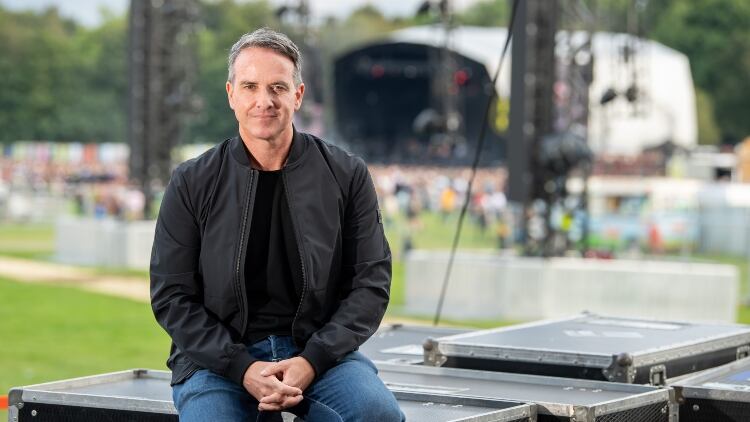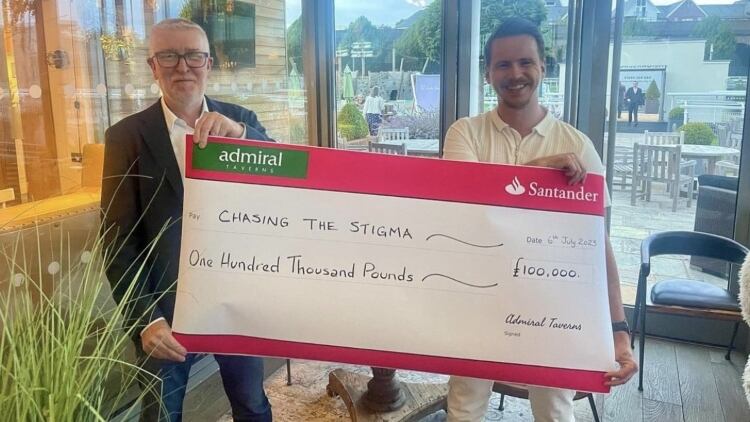“The government has got a real job to do,” Lord argues. “On 22 November (when the Autumn Statement takes place) if the chancellor doesn’t extend business rates relief then, on average, it’s going to add about another £12,500 cost per pub. That’s not sustainable. He would force more closures and obviously on the back of that you’ve got job losses and the supply chain being affected – that would be absolutely horrific.”
The co-founder of The Warehouse Project and Parklife music festival adds many trade body chiefs of hospitality agree one thing the industry needs is a reduction in VAT from 20% to 12.5%, which would “save many in the sector”.
“And it would just bring us more in line with the rest of Europe, where VAT is, on average, between 8% and 9% because 20% is phenomenal. It really is,” Lord states.
“Fair play to the Government when it did reduce VAT to 5% during the Covid period and then up to 12.5%, it was a stroke of genius and it did save many businesses. The mistake was they ramped it back up to 20% within just six months, which hurt a lot of people. So I think the Government should give a minimum of a three-year grace period at 12.5% and that would get us through it.”
Lord also stresses he especially concerned about the future of pubs.
He muses: “I’m starting to realise it’s a generational thing. When I hear the word ‘pub’, I think of my granddad after work sat there nursing the same pint for two hours it – which isn’t a great business model – but he’d be there with his mates and was social activity.
“The pub was the community hub and I think the new generation aren’t seeing that and that is going to be a real shame if that comes down the line.
“I’m shocked how many people in my office are going teetotal. This is The Warehouse Project (club nights organising business) – we’re supposed to be the party animals, the rock stars.
“There’s a definite shift happening coming through and we’re now pushing quality non-alcoholic drinks.
“I recently paid £7.60 for a pint in London and it cheesed me off when the PM Rishi Sunak had that photo at the Great British Beer Festival pulling a pint and was saying ‘look what I’ve done for hospitality’. Well, actually, the tax, the duty on a pint is 11 times what it is in Germany.
“We’re reaching a point where £7.60 for a pint is not sustainable and the public are blaming the pub but it’s not the pub’s fault.”
He explains pubs are in distress and people are saying ‘well what do you expect when you charge you £7 for a pint of beer in some places?’ sadly, he says, pubs are being forced to charge such prices, “they can’t open and make a loss. We need to change that public perception”.
Preloading danger
Lord said there is a danger when people ‘preload’ at home because, in a pub, a drinker is judged for knocking back pints and that doesn’t happen when people buy cheaper alcohol in supermarkets and a problem that students, in particular, are facing.
He says students can go to Sainsbury’s and buy a bottle of vodka for £8 and will share it among three or four of them and by the time they get into a club or a bar, “they’re hammered”.
Lord adds: “We need consistency and a level playing field between supermarkets and licensed premises and, even though I don’t agree with everything he says, Tim Martin of JD Wetherspoon has been saying this all along and he’s absolutely right.”
The north-west of England is outpacing the rest of England when it comes to hospitality venues opening according to a report in The Times.
Lord explains: “The stats show [site numbers in] Liverpool has increased by 22%, Manchester’s increased by 10%, but nationally across the board, it looks like we’ve seen an overall decline of 45% since 2003.
“Even though I’m a proud Manc, I was really pleased for Liverpool when I saw that figure.
“I was there four weeks ago for the Labour Party conference and I was surprised how incredible it was – especially on a Sunday night. It was bouncing and they’ve done a very good job. In Manchester, we shout about what we’re doing while Liverpool sort of goes under the radar and they just crack on with it.”
Lord has a theory on why the north-west is bouncing back more quickly.
He recalls going to a club called the Hacienda. “It is completely legendary and the reason why the Hacienda worked was because during that period Manchester, Leeds, Liverpool, Sheffield, etc. were completely and utterly forgotten about, during the Thatcher years – we were thrown to the wolves.
“People just had enough. So they went into the Hacienda, let their hair down and exploded and the whole music and clothing scene came out of this one club.”
Lord talked about the comparison with Covid times when Mayor of Greater Manchester Andy Burnham was proclaimed the ‘King of the North’ as he gave a defiant speech against Government rules and a lack of support from Westminster.
“We were in Tier 3 for pretty much most of that period and people were so geared up and ready after that pent-up frustration that when we reopened – bang – you know we were ready to party,” Lord says.
“Parklife festival – that’s my festival – had a capacity of 80,000 and would usually take about three-and-a-half months to sell out but it sold out since 78 minutes.
“This is not a north-south divide thing but I think northerners have more fun. I honestly believe that.”
Five-point plan
So is there anything else Lord would like to see in the Autumn Statement?
“There is something but I won’t see it,” he begins. “I’m very busy lobbying what I believe will be the new Government and I’m not making a political statement – the polls are telling us [there will be a new Government] unless something catastrophic happens.
“I launched a five-point plan: VAT and business rates were two of the points, another point was with Ofgem.
“When I heard about all these people locked into energy contracts, I wrote quite a stern letter to the CEO Jonathan Brearley and, fair play, he came to Manchester with his team to meet me.
“We both agreed on one thing and that was the Government have to give Ofgem more powers and more teeth because, at the moment, you or I can go and open an energy brokers tomorrow and we’re not regulated at all. And that’s what happened. Brokers went in and they locked everybody into three to four-year contracts.
“Prices have come down but Ofgem needs the power to break those contracts and regulate the brokers so that can never ever happen again because we will go to war again at some point.”
He adds another ask is that local authorities need to be given more power on licensing conditions.
“It doesn’t make any sense at all that somebody in Whitehall is telling an operator in Salford they can or can’t have a pavement licence when local authorities know much better what works and what doesn’t,” Lord argues.
“And the final one is to protect the workforce. When you look at countries like Italy or France, a job in hospitality is a vocation for life and they’re proud about it.
“I still think people who aren’t in our industry perceive it as a stepping stone through university or a Saturday job or something like that, which is great, but I didn’t get any A levels and didn’t go to university. There’s no barrier to progression in our industry.
“There is a T-level in catering and there should be a specific one for hospitality to help bring people in.”




